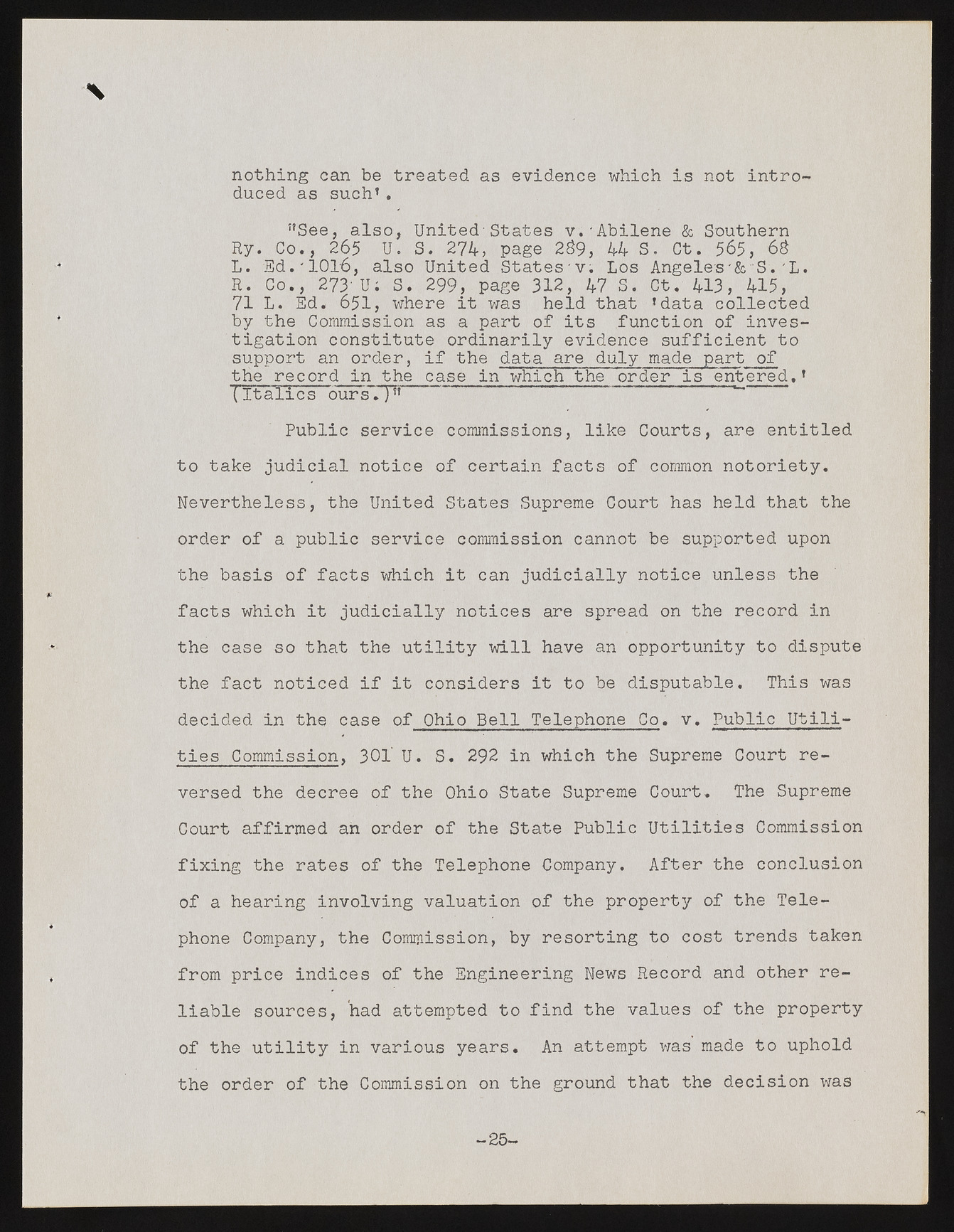Copyright & Fair-use Agreement
UNLV Special Collections provides copies of materials to facilitate private study, scholarship, or research. Material not in the public domain may be used according to fair use of copyrighted materials as defined by copyright law. Please cite us.
Please note that UNLV may not own the copyright to these materials and cannot provide permission to publish or distribute materials when UNLV is not the copyright holder. The user is solely responsible for determining the copyright status of materials and obtaining permission to use material from the copyright holder and for determining whether any permissions relating to any other rights are necessary for the intended use, and for obtaining all required permissions beyond that allowed by fair use.
Read more about our reproduction and use policy.
I agree.Information
Digital ID
Permalink
Details
Member of
More Info
Rights
Digital Provenance
Publisher
Transcription
\ nothing can be treated as evidence which is not introduced as such’. ”See, also, United-States v.'Abilene & Southern Ry. Co., 265 U. S. 274, page 239, 44 S. Ct. 565, 63 L. Ed.'10l6, also United States'V. Los Angeles'&?S.'L. R. Co., 273- U; S. 299, page 312, 47 S. Ct. 413, 415, 71 L. Ed. 651, where it was held that * data collected by the Commission as a part of its function of investigation constitute ordinarily evidence sufficient to support an order, if the data are duly made part of the record in the case in which the order is entered.* [italics our s’. Public service commissions, like Courts, are entitled to take judicial notice of certain facts of common notoriety. Nevertheless, the United States Supreme Court has held that the order of a public service commission cannot be supported upon the basis of facts which it can judicially notice unless the facts which it judicially notices are spread on the record in the case so that the utility will have an opportunity to dispute the fact noticed if it considers it to be disputable. This was decided in the case of Ohio Bell Telephone Co. v. Public Utilities Commission, 301 U. S. 292 in which the Supreme Court reversed the decree of the Ohio State Supreme Court. The Supreme Court affirmed ah order of the State Public Utilities Commission fixing the rates of the Telephone Company. After the conclusion of a hearing involving valuation of the property of the Telephone Company, the Commission, by resorting to cost trends taken from price indices of the Engineering News Record and other reliable sources, had attempted to find the values of the property of the utility in various years. An attempt was made to uphold the order of the Commission on the ground that the decision was -25-

